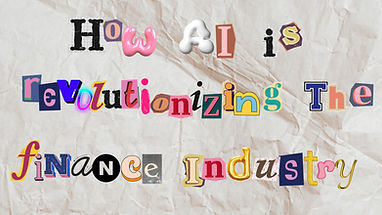The Philippines Backs AI For Ethical Policy Making
- Yen Ocampo
- Apr 26, 2023
- 3 min read
Updated: Aug 14, 2025
The use of artificial intelligence (AI) in the Philippine economy has several benefits, including increased efficiency, productivity, and innovation. AI can also aid in the creation of new employment and industries while enhancing decision-making and customer service.
With this, the National ICT Planning, Policy and Standards Bureau (NIPPSB) of the Department of Information and Communications Technology (DICT) in collaboration with the International Telecommunication Union (ITU) promotes AI in ethical policymaking and discusses its societal impact through activity titled AI Dialogue: Gender-Based AI Policy in the Philippines.
The collaboration is part of the ITU’s initiative, Enhancing the Development of Standards and Frameworks for Critical Technologies in Southeast Asia, which focuses on critical technologies such as AI and the possible gender and social biases associated with them.
As one of the project’s four beneficiary countries, the Philippines worked with the ITU to facilitate some initiatives on standardisation principles and the incorporation of AI into policymaking.
Jocelle Batapa-Sigue, DICT Undersecretary and ITU Councillor of the Philippines praised the ITU for its important engagement with the nation. She also emphasised the importance of AI and technology in influencing society’s future as the country moves closer to digitalisation.
“We are humans in a period in history characterised by the widespread use and development of artificial intelligence technology,” says Jocelle.
She continued by saying that AI has the power to dramatically alter how people live and conduct business. Additionally, it can raise productivity, accuracy, and efficiency across a range of sectors. As a result, this collaboration will assist everyone in creating rules that guarantee gender inclusion and inclusivity on all fronts.
She also emphasised the significance of taking a “whole society view” into account while formulating and carrying out national policy. Plans and policies that adhere to international AI ethics standards and boost global competitiveness will result from a holistic understanding of policymaking and an approach focused on results.
Anna Mae Lamentillo, the DICT Undersecretary and Spokesperson, expressed how AI can change things and how it should be used to improve businesses and the national economy. Citing AI’s potential to benefit citizens, regional industries, and the overall economy.
With the results of ITU’s research initiative, policymakers must be made aware of the significance of gender-sensitive AI in their regulatory processes. She added that it must implement the necessary policies and ensure that they are inclusive and gender sensitive.
In the Philippines, the ITU will undertake foundational training and establish a regional network of female policymakers, regulators, and delegates. This initiative will continue until June 2024 and is expected to promote coordination and cooperation in Southeast Asia by sharing best practices.
The country recognises the potential for AI to enhance decision-making processes’ transparency, accountability, and equity. AI can also help the government resolve complex policy challenges and improve the delivery of public services.
Moreover, the use of AI has the potential to increase economic growth and competitiveness in the Philippines, as well as contribute to social and environmental sustainability.
Implementing AI-based solutions can generate new opportunities for economic growth and development, including the creation of new industries and employment. The Philippines’ endorsement of AI for ethical policymaking demonstrates the nation’s dedication to modernising its governance and leveraging innovative technologies to advance the public good.
This opinion piece is published under the Creative Commons Attribution 4.0 International License (CC BY 4.0). You are free to share, adapt, and redistribute this content, provided appropriate credit is given to the author and original source.

